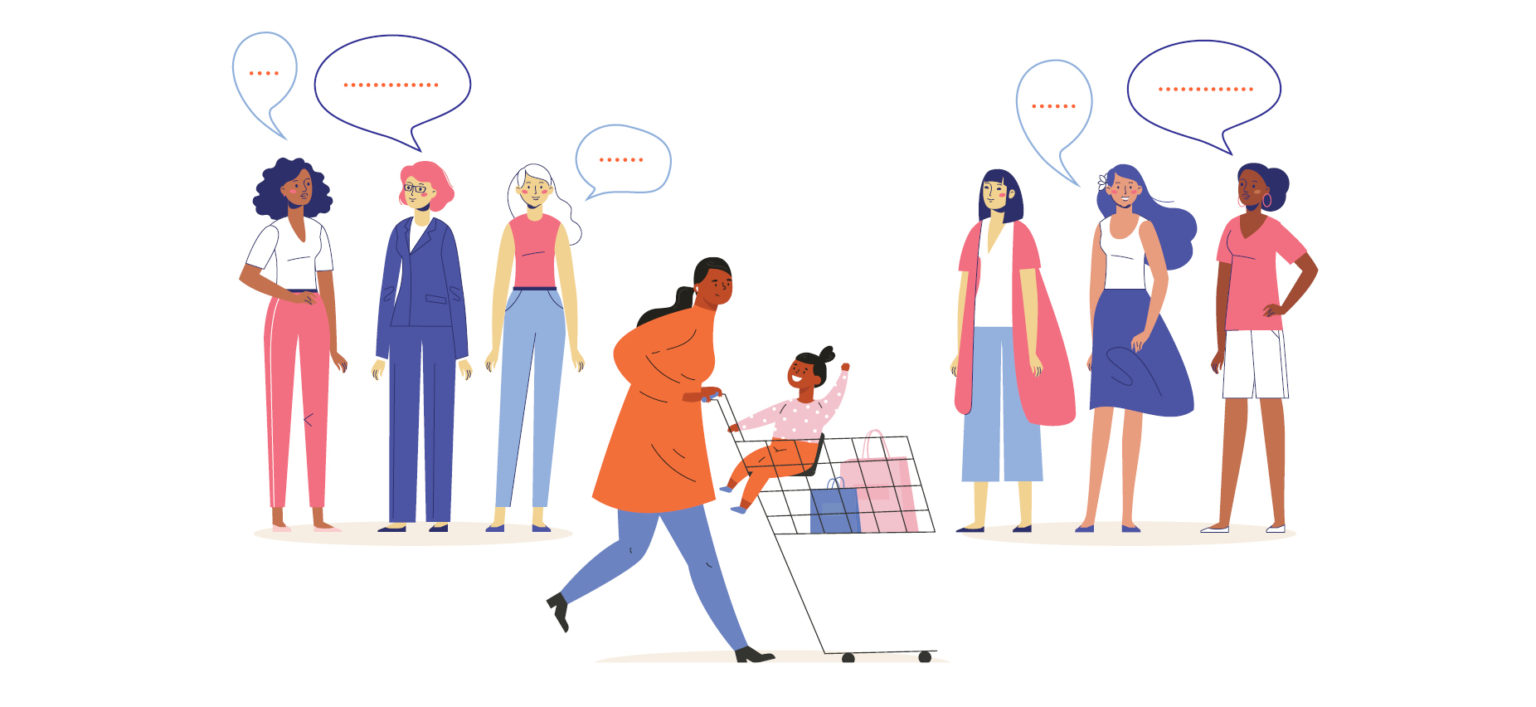The voice had come from behind me as I waited in line at the bank to cash a check.
“They say you shouldn’t feed them any nuts.”
I glanced up at the bank tellers. Even if I had been armed with a pocketful of pistachios, I didn’t really see the danger in throwing a few across the counter.
“Yeah, they say the little one could develop an allergy at that age,” the voice added.
Then I understood. My daughter, Sadie, was there with me, no more than 2 months old at the time, snoozing soundly in the stroller. Or maybe she was just feigning sleep in an effort to avoid the conversation.
I was not so lucky. It was classic unsolicited baby advice, and there was no escape. The woman who owned the voice, armed with several gray-hairs’ worth of motherly instinct, had already decided that I was in need of her help.
The same obscure bits of wisdom have been preached to unsuspecting moms and dads for generations, ever since it was universally decided that all new parents are complete idiots. Apparently, without the casual but insistent guidance of total strangers, babies everywhere would be underfed, improperly clothed, sleeping at the wrong time in the wrong position—and every one of them would be allergic to nuts.
People love to show off their knowledge in any area of expertise. An attendant at a service station might remind you to check your car’s oil, or a gym addict might introduce you to a new workout that he or she insists is game-changing. But it’s worse with babies. Their quiet innocence seems to bring out the compassionate side of adults, even the ones who normally mind their own business.
Anyone who has ever: been a parent, touched a diaper, babysat for two hours or driven slowly past a daycare believes they have a civic duty to educate amateur parents. They simply can’t help themselves. Their instruction is always offered as gospel, despite being flagrantly general.
“They say pacifiers will give your baby buck teeth,” an acquaintance once thoughtfully proposed. I nodded, a polite half-smile fixed on my face, as I wondered why our planet wasn’t filled with a race of human beavers.
Usually the speaker will cite they as the expert source. It doesn’t matter that no one really knows who they are, nor that you might not want to hear what they have to say. They are a firm authority on almost any topic. They know which baby foods contain too much soy, and they know when to start vetting preschools.
If you take your newborn out in public, the same thing will inevitably happen to you. Halfway through your shopping at Wegmans, your infant passed out in the (safely buckled carrier in the) cart, a well-meaning stranger will confront you.
“You know, they say that you should try to sleep when your baby sleeps.”
Does the bearer of this insight believe you don’t have access to the same internet she does? Try not to take her tip as any sort of judgment. She is just trying to be helpful. Swallow your sarcasm, and fight the urge to respond with, “She sleeps best in the car. Shall I nap on the drive home?”
During Sadie’s infancy, I was a stay-at-home dad, perhaps marked as an easy target for advice by my helpless demeanor. Fathers are often presumed to lack the caring instinct that women possess. Those 2 a.m. feedings gave me a listless look, which didn’t add to an impression of competence. I might as well have been wearing a T-shirt that read “I’m about to crush walnuts and feed them to a 6-week old.”
Over time, I found that the best defense was simply to look like you know what you’re doing. Perception is everything. Buy an expensive stroller or an Ergobaby carrier. Learn some insider jargon like colostrum and fontanel so that you can insert the words into a conversation. Memorize a recipe for lactation cookies.
I liked to begin conversations with, “My mother has several nursing degrees and my sister is a midwife.” This statement is true in my case, but you are welcome to borrow it.
Little tricks like these should buy you enough time to fake some gratitude and beat a hasty retreat. Don’t let all the words of so-called wisdom get to you—or you might end up thrusting your baby into the stranger’s hands, screaming, “Here, you seem to know what you’re doing. Bring him back to me when he’s 18!” The resulting investigation by Child Protective Services will be a sign you need to dial down your response.
By the way, while the advice of strangers is always free, that doesn’t mean it’s all worthless. You just need to learn to separate the wheat from the chaff. Expert opinions are changing constantly, and it can be difficult to sort out. When you get home, do some fact checking. If you have questions, discuss them with your pediatrician. Remember, no one knows your child better than you, so take advice with a grain of salt. The intruder insisting, “No bright lights, don’t get them wet, and never feed them after midnight” probably just watches too many movies.
Most importantly, 10 years from now, when you are the baby expert, try to go easy on that new clueless dad you come across. He might not be struggling—just learning. It’s been easy for me to avoid turning into a know-it-all. From ages 3 to 7, my daughter survived on Chicken McNuggets, so I’m aware I might not have the best knowledge to dispense.
But they of course still do. They always will. And they are certain that, without their help, all new parents’ lives will be a chaotic guessing game of baby trial and error. Or so they think.





